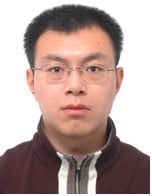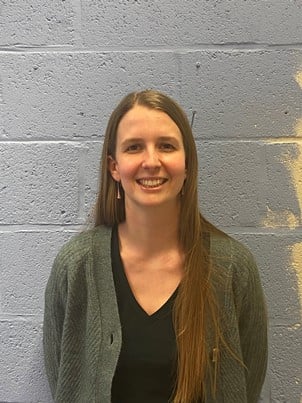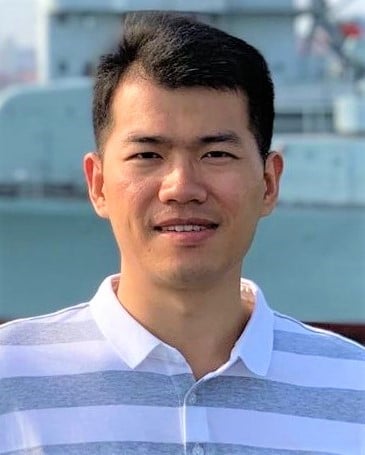
Journal Menu
► ▼ Journal Menu-
- Sensors Home
- Aims & Scope
- Editorial Board
- Reviewer Board
- Topical Advisory Panel
- Instructions for Authors
- Special Issues
- Topics
- Sections & Collections
- Article Processing Charge
- Indexing & Archiving
- Editor’s Choice Articles
- Most Cited & Viewed
- Journal Statistics
- Journal History
- Journal Awards
- Society Collaborations
- Conferences
- Editorial Office
Journal Browser
► ▼ Journal Browser-
arrow_forward_ios
Forthcoming issue
arrow_forward_ios Current issue - Vol. 25 (2025)
- Vol. 24 (2024)
- Vol. 23 (2023)
- Vol. 22 (2022)
- Vol. 21 (2021)
- Vol. 20 (2020)
- Vol. 19 (2019)
- Vol. 18 (2018)
- Vol. 17 (2017)
- Vol. 16 (2016)
- Vol. 15 (2015)
- Vol. 14 (2014)
- Vol. 13 (2013)
- Vol. 12 (2012)
- Vol. 11 (2011)
- Vol. 10 (2010)
- Vol. 9 (2009)
- Vol. 8 (2008)
- Vol. 7 (2007)
- Vol. 6 (2006)
- Vol. 5 (2005)
- Vol. 4 (2004)
- Vol. 3 (2003)
- Vol. 2 (2002)
- Vol. 1 (2001)
Need Help?
Announcements
16 June 2022
9th International Symposium on Sensor Science (I3S 2022), 20 – 22 June 2022 in Warsaw, Poland
Are you attending the 9th International Symposium on Sensor Science? Feel free to stop by MDPI's journal booth to have a chat with our colleagues from the journal Sensors.
This international conference, supported jointly by the Photonics Society of Poland, Warsaw University of Technology, and MDPI's Sensors (ISSN: 1424-8220), will bring together scientists from different areas to discuss important recent developments in sensor technology. It will represent a great opportunity for an in-person meeting of an interdisciplinary community aiming to discuss important breakthroughs in sensor technology and its related fields.
The Program can be accessed here.
The main topics of the conference include:
Chemical sensors;
Biosensors;
Physical sensors;
Optical/photonic sensors;
Sensor applications;
Specialty optical fibers for sensing;
Materials, microfluidics, configurations and strategies for sensing;
Distributed sensing in optical fibers;
Amorphous materials for sensor applications.
We look forward to your participation in this exciting event.
For questions related to this conference please contact Elena Gonzalez.
15 June 2022
Meet Us at the 2022 IEEE/RSJ International Conference on Intelligent Robots and Systems (IROS 2022), 23–27 October 2022, Kyoto, Japan

Conference: The 2022 IEEE/RSJ International Conference on Intelligent Robots and Systems (IROS 2022)
Date: 23–27 October 2022
Place: Kyoto, Japan
Machines (ISSN: 2075-1702) will be attending IROS 2022 as an exhibitor. This meeting will take place from 23 to 27 October in Kyoto, Japan.
IROS is one of the largest and most impactful robotics research conferences worldwide. It provides an international forum for the international robotics research community to explore the frontiers of science and technology in intelligent robots and smart machines. The theme of IROS 2022 is “Embodied AI for a Symbiotic Society”. In addition to technical sessions and multimedia presentations, IROS conferences also hold panel discussions, forums, workshops, tutorials, exhibits, and technical tours to encourage fruitful discussions among conference attendees.
The following MDPI journals will be represented:
- Machines;
- Robotics;
- Sensors;
- Computers;
- Applied Sciences;
- Systems;
- Technologies;
- Inventions;
- JMMP;
- Fractal Fract;
- ASI;
- Smart Cities;
- AI;
- Automation.
If you are planning to attend this conference, please do not hesitate to start an online conversation with us. Our delegates look forward to meeting you in person and answering any questions that you may have. For more information about the conference and virtual booth, please visit the following website: https://iros2022.org/.
9 June 2022
2021 CiteScores - Released

The 2021 citation metrics have been officially released in Scopus!
We are pleased to announce that 182 MDPI journals are included, of which:
● 21 journals received their first CiteScore.
● 85% of journals increased their CiteScore from 2020.
● 155 journals (85%) ranked above average, in at least one category.
The following 65 MDPI journals (36%) ranked among the top 25% of journals, in at least one category:
|
Journal |
CiteScore |
Quartile |
Category |
|
10.1 |
Q1 |
Genetics |
|
|
10.0 |
Q1 |
Biomedical Engineering |
|
|
8.1 |
Q1 |
Pharmacology, Toxicology and Pharmaceutics (miscellaneous) |
|
|
7.9 |
Q1 |
Electrical and Electronic Engineering |
|
|
7.9 |
Q1 |
Nutrition and Dietetics |
|
|
7.4 |
Q1 |
General Earth and Planetary Sciences |
|
|
7.2 |
Q1 |
Computer Science Applications |
|
|
6.9 |
Q1 |
Inorganic Chemistry |
|
|
6.9 |
Q1 |
Computer Networks and Communications |
|
|
6.7 |
Q1 |
General Biochemistry, Genetics and Molecular Biology |
|
|
6.6 |
Q1 |
General Chemical Engineering |
|
|
6.6 |
Q1 |
Health, Toxicology and Mutagenesis |
|
|
6.6 |
Q1 |
Infectious Diseases |
|
|
6.5 |
Q1 |
Food Science |
|
|
6.5 |
Q1 |
Civil and Structural Engineering |
|
|
6.4 |
Q1 |
Nature and Landscape Conservation |
|
|
6.4 |
Q1 |
Instrumentation |
|
|
6.1 |
Q1 |
Management Information Systems |
|
|
5.9 |
Q1 |
Chemistry (miscellaneous) |
|
|
5.7 |
Q1 |
Polymers and Plastics |
|
|
5.6 |
Q1 |
Engineering (miscellaneous) |
|
|
5.5 |
Q1 |
General Environmental Science |
|
|
5.5 |
Q1 |
Urban Studies |
|
|
5.4 |
Q2 |
Computer Networks and Communications |
|
|
5.3 |
Q1 |
Food Science |
|
|
5.3 |
Q1 |
Plant Science |
|
|
5.2 |
Q1 |
Ecology, Evolution, Behavior and Systematics |
|
|
5.2 |
Q1 |
General Engineering |
|
|
Journal of Open Innovation: Technology, Market, and Complexity |
5.1 |
Q1 |
Development |
|
5.0 |
Q1 |
Chemistry (miscellaneous) |
|
|
5.0 |
Q1 |
Control and Optimization |
|
|
5.0 |
Q1 |
Geography, Planning and Development |
|
|
5.0 |
Q1 |
Geography, Planning and Development |
|
|
4.9 |
Q1 |
Forestry |
|
|
4.9 |
Q1 |
Control and Optimization |
|
|
4.9 |
Q1 |
Soil Science |
|
|
4.8 |
Q1 |
General Earth and Planetary Sciences |
|
|
4.8 |
Q1 |
Mechanical Engineering |
|
|
4.8 |
Q1 |
Public Health, Environmental and Occupational Health |
|
|
4.8 |
Q1 |
Geography, Planning and Development |
|
|
International Journal of Environmental Research and Public Health |
4.5 |
Q1 |
Public Health, Environmental and Occupational Health |
|
4.5 |
Q1 |
Physical Therapy, Sports Therapy and Rehabilitation |
|
|
4.4 |
Q1 |
Mathematical Physics |
|
|
4.4 |
Q1 |
General Medicine |
|
|
4.3 |
Q1 |
General Mathematics |
|
|
4.2 |
Q1 |
Surgery |
|
|
4.1 |
Q1 |
Health Professions (miscellaneous) |
|
|
4.1 |
Q1 |
Plant Science |
|
|
4.0 |
Q1 |
General Engineering |
|
|
4.0 |
Q1 |
Forestry |
|
|
4.0 |
Q1 |
Education |
|
|
3.9 |
Q1 |
General Pharmacology, Toxicology and Pharmaceutics |
|
|
3.9 |
Q1 |
Applied Mathematics |
|
|
3.8 |
Q1 |
Development |
|
|
3.8 |
Q1 |
Architecture |
|
|
3.8 |
Q1 |
Metals and Alloys |
|
|
3.5 |
Q1 |
Communication |
|
|
3.4 |
Q1 |
General Social Sciences |
|
|
2.9 |
Q1 |
General Mathematics |
|
|
2.8 |
Q1 |
Analysis |
|
|
2.7 |
Q1 |
General Veterinary |
|
|
2.6 |
Q1 |
Algebra and Number Theory |
|
|
1.8 |
Q1 |
Conservation |
|
|
1.0 |
Q1 |
Religious Studies |
|
|
0.9 |
Q1 |
Philosophy |
Source: 2021 CiteScores™ (Elsevier)
15 April 2022
Sensors | Special Issue Mentor Program
We are pleased to announce the launch of a new initiative, the Special Issue Mentor Program.
This program intends to provide an opportunity for early career scientists to enhance their editing, networking, and organizational skills, and to work closely with our journal to gain more editorial experience. Early career scientists who have novel ideas for new Special Issues in Sensors (ISSN 1424-8220; IF 3.576) will act as Guest Editors under the mentorship of an experienced scientist; this mentor could be a member of the Editorial Board of Sensors or from other well-established research institutes or laboratories.
If you are interested in this opportunity, please send your Special Issue proposal to the Sensors Editorial Office (sensors@mdpi.com) or complete and submit the form at the following link: https://www.mdpi.com/journalproposal/sendproposalspecialissue/sensors. We will discuss the process (i.e., mentor collaboration, Special Issue topic feasibility analysis, among others) in further detail.
In addition to the new Special Issue Mentor Program, Sensors continues to welcome Special Issue proposals based on hot research topics.
8 April 2022
Meet Us Virtually at the 9th International Electronic Conference on Sensors and Applications (ECSA-9), 1–15 November 2022

Conference: 9th International Electronic Conference on Sensors and Applications (ECSA-9)
Date: 1–15 Nov 2022
Website: https://ecsa-9.sciforum.net/
Organizer: MDPI, Sensors (ISSN: 1424-8220)
It is a pleasure to announce that the 9th International Electronic Conference on Sensors and Applications (ECSA-9), chaired by Dr. Stefano Mariani, Dr. Francisco Falcone, Dr. Stefan Bosse, and Dr. Jean-marc Laheurte, will be held on https://ecsa-9.sciforum.net/ from 1 to 15 November 2022.
This conference aims to provide leading scientists working in the field of sensing technologies and their applications with a robust, common platform on which to share and discuss the latest research as well as promote the advancement of this exciting and rapidly changing field. We hope to encourage discovery across the discipline as we cover the following four broad themes in Sessions A–F, and then two special targeted themes in Sessions G–H, as listed below:
- Chemo- and Biosensors (Session A);
- Physical Sensors (Session B);
- Sensor Network and IoT (Session C);
- Remote Sensing (Session D);
- Sensor Data Analytics (Session E);
- Applications (Session F);
- Student Session (Session G);
- Posters (Session H).
ECSA-9 offers you the opportunity to participate in an international scholarly conference without the concerns and expenses of travelling—all you need is access to the Internet. During the conference period, you will be able to upload papers, posters, and presentations (including videos), comment on other presentations, and otherwise engage with fellow scholars in real time. In this way, the conference offers a novel opportunity to exchange opinions and views within the scholarly community and to discuss the papers and latest research in a discussion forum. The participation, as well as the attendance of this online conference, is free of charge.
Paper Submission Guidelines:
For information about the procedure for submission, peer review, revision, and acceptance of conference proceedings papers, please refer to the section “Instructions for Authors” at https://ecsa-9.sciforum.net/.
Timeline:
Abstract submission: 26 July 2022;
Notification of acceptance: 16 August 2022;
Proceedings paper submission deadline: 13 September 2022;
Conference: 1–15 November 2022.
We look forward to receiving your research papers and to welcoming you to this ninth edition of the e-conference.
ECSA Secretary
Email: ecsa@mdpi.com
6 April 2022
Sensors | Special Issue "Sensors Young Investigators’ Contributions Collection"—Open for Submissions

Special Issue: "Sensors Young Investigators’ Contributions Collection"
Special Issue website: https://www.mdpi.com/si/115960
The collection of Sensors 2022 Young Investigator Award aims to compile the current trends and research directions of internationally renowned and successful young scientists. In this way, we hope to create a platform for young scientists to exchange knowledge and increase the visibility of their studies in the scholarly community of sensor technology. All accepted papers in the Special Issue will be offered a 20% discount on the Article Processing Charge (APC) to support the work of young scientists.
Young scientists (under 40 years of age) who have obtained a Ph.D. degree, produced ground-breaking research and made significant contributions to the advancement of sensors and sensing-related topics are welcome to contribute to this Issue.
Along with their submission, we request that any young authors who are interested in this opportunity send a short biography, including a photograph, their educational background, and current research interests or scientific background. With this new initiative, we hope to strengthen the networking of young scientists, encouraging them to pursue their research careers and assisting them in surmounting the challenges and hurdles they may face on this journey.
Prof. Dr. Vittorio M.N. Passaro
Guest Editor
1 April 2022
Sensors 2022 Travel Award—Winners Announced
The Sensors 2022 Travel Award closed for applications at the end of 2021. The award is divided into seven sections based on the research field. The applications for each award were assessed by a different Evaluation Committee consisting of senior scholars involved in the section’s research field. We are pleased to announce the winners:
|
|
Sensors 2022 Travel Award in Biosensors and Chemical Sensors: Dr. Pritam Khan Postdoctoral researcher at the Department of Physics, University of Limerick, Limerick, Ireland |
|
|
Sensors 2022 Travel Award in Intelligent Sensors and Smart Sensing: Ms. Ana Catarina Pelicano Ph.D. student at the Faculty of Science, University of Lisbon, Lisbon, Portugal |
|
|
Sensors 2022 Travel Award in Internet of Things and Sensor Networks: Mr. Muhammad Sarmad Shahab Mir Ph.D. student at the University Carlos III de Madrid and Marie-Curie early-stage researcher at IMDEA Networks, Madrid, Spain |
|
|
Sensors 2022 Travel Award in Optical Sensors and Image Sensors: Dr. Xuezhi Zheng Postdoctoral researcher at the WaveCoRE Division, Department of Electrical Engineering, KU Leuven, Belgium |
|
|
Sensors 2022 Travel Award in Physical Sensors and MEMS: Dr. Gerlinde Lefever Postdoctoral researcher at the department of Mechanics of Materials and Constructions (MeMC), Free University of Brussels, Belgium |
|
|
Sensors 2022 Travel Award in Remote Sensors and Radar Sensors: Mr. Karol Abratkiewicz Ph.D. student from the Faculty of Electronics and Information Technology, Warsaw University of Technology, Poland |
|
|
Sensors 2022 Travel Award in Vehicular Sensing: Dr. Kai Wu Postdoctoral fellow at the Global Big Data Technologies Centre (GBDTC) at the University of Technology Sydney (UTS), Australia |
The winners will each be awarded CHF 600 and a certificate. On behalf of the Assessment Committee, we would like to congratulate the winners on their accomplishments.
6 February 2022
Sensors | Call for Papers for Special Issue: “Women’s Special Issue Series: Sensors”

Special Issue: “Women’s Special Issue Series: Sensors”
Website: https://www.mdpi.com/journal/sensors/special_issues/WoS
Dear Colleagues,
To celebrate and highlight the achievements of women in the sensors research area, this Special Issue, entitled “Women’s Special Issue Series: Sensors”, will present sensor-related work from leading female scientists. We also hope that this Special Issue will further encourage and promote the scientific contributions of female researchers in this field.
A “Women in Sensors Award” will be launched and granted to the best paper published in this Special Issue. Each award nominee will be assessed on her paper’s originality, quality, and contribution to the field by the Evaluation Committee. The winner will receive a certificate, an award of CHF 1000, and an opportunity to publish her next submission in Sensors free of charge.
The topic of this Special Issue include, but are not limited to:
- 3D sensing;
- Wearable sensors, devices, and electronics;
- Lab-on-a-chip;
- Sensor devices, technology, and applications;
- Advanced materials for sensing;
- Photonic sensors;
- Nanophotonics.
Keywords:
- laser scanning;
- structured light;
- reference measurements;
- natural head position;
- laser beam computer topography;
- medical image registration;
- kinect;
- reliability;
- inertial sensor;
- meta-analysis;
- flexible sensors;
- force measurements;
- spectroscopy;
- plasmonic sensing;
- point-of-care sensors, flexible sensors, SERS sensing, nanophotonics.
We welcome submissions from all authors.
Guest Editors:
Dr. Maria Leilani Torres
Dr. Areti Mourka
Dr. Anna Chiara De Luca
21 January 2022
Meet Us at the 9th International Symposium on Sensor Science (I3S 2022), 20–22 June 2022, Warsaw, Poland

Conference name: 9th International Symposium on Sensor Science (I3S 2022)
Conference website: https://i3s2022warsaw.sciforum.net/
Date: 20–22 June 2022
Place: Warsaw, Poland
It is with great pleasure that we announce the 9th International Symposium on Sensor Science, to be held in Warsaw, Poland, from 20 to 22 June 2022.
Sensor technology has been shown to be suitable for applications in many important fields, including industrial applications, security medical diagnostics, and environmental monitoring. This international conference, supported by the Photonics Society of Poland, Warsaw University of Technology, as well as MDPI’s Sensors (ISSN: 1424-8220), will bring together scientists from different areas to discuss important recent developments in sensor technology. It will represent a great opportunity for an in-person meeting of an interdisciplinary community aiming to discuss important breakthroughs in sensor technology and its related fields.
The main topics of the conference include:
- Chemical sensors;
- Biosensors;
- Physical sensors;
- Optical/photonic sensors;
- Sensor applications;
- Specialty optical fibers for sensing;
- Materials, microfluidics, configurations and strategies for sensing;
- Distributed sensing in optical fibers;
- Amorphous materials for sensor applications.
We look forward to your participation in this exciting event.
Dr. Piotr Lesiak, Prof. Tomasz Woliński and Prof. Leszek Jaroszewicz
I3S 2022 Conference Chairs
 Follow the conversation on Twitter with #I3S2022
Follow the conversation on Twitter with #I3S2022
7 January 2022
Meet Us Virtually at the Topic Workshop | Scientific Advances in STEM, 12 January 2022

MDPI would like to invite all recognized experts in their field to attend our Topic Workshop | Scientific Advances in STEM. The aim of this workshop is to provide a platform for scholars in disciplines related to science and engineering to discuss and contribute to the advancement of these fields.
Webinar: Topic Workshop | Scientific Advances in STEM
Date: 12/1/2022
Time: 9:30 a.m. (CET)
Register in advance for this webinar here.
After registering, you will receive a confirmation email containing information on how to join the workshop. The number of participants in the live session is limited, but the recording will be made available shortly afterwards. Registrations with academic institutional email addresses will be prioritized.
Workshop Chairperson:
- Ana María Beltrán Custodio, University of Seville (US)
Dr. Ana M. Beltrán has a Ph.D. in material science and is currently an Associate Professor of Material Science at the University of Seville (Spain). Her scientific interests include the characterization of different materials, both at a macroscale (concerning the mechanical properties of biomaterials) and at a nanoscale, through transmission electron microscopy (structural and compositional analysis of bio-nanostructures, semiconductor, and catalysts) to understand their behavior. She has been the Guest Editor of Special Issues for the journal Metals, and she also contributed to MDPI’s first multidisciplinary topic involving the journals Metals, Polymers, Foods, Sustainability, and Sensors, from which a book was published. She is currently involved in the running of a second multidisciplinary topic entitled “Scientific Advances in STEM: Synergies to Achieve Success”.
Workshop Speakers:
- Frank Jörg Clemens, Empa Swiss Federal Laboratories for Materials Science and Technology Überlandstrasse
Dr. Frank Clemens is a Group Leader (Smart Ceramic Processing) at the Laboratory for High Performance Ceramics at Empa, Swiss Federal Laboratories for Material Science and Technology, Switzerland. His scientific and applied research belongs to the thermoplastic processing of powder-based sensors, actuators, and structural materials. His group focuses on national and international projects in this field, and he works with physicists, chemists, material scientists, and engineers to investigate activation energies on different processing steps. In addition, he has also developed new strategies for the processing of functional ceramics and soft sensor materials and structures. Since 2003, he has been a lecturer at ETH Zurich (Switzerland), and between 2010 and 2021, he was a lecturer at ZHAW (Switzerland). He has more than 150 peer-reviewed articles and patents.
- Dr. Carlos Bengoechea, Chemical Engineering Department, University of Sevilla, Seville, Spain
Prof. Dr. Carlos Bengoechea is an Associate Professor at the University of Seville, Spain, where he teaches different courses, such as Chemical Engineering or Polymeric Materials. He has wide experience in the development of applications (e.g., plastics, emulsions) that add value to by-products of the industry (e.g., soy protein, porcine plasma). Currently, he is supervising an R&D project on green superabsorbent materials for personal care applications using different by-products.
We are pleased to provide this excellent opportunity to all the brilliant researchers to propose and develop new approaches, exchange perspectives, and encourage new lines of research.
To find out more about the speakers and the program, please visit https://sciforum.net/event/SASTEM. We hope you can join us for this event.
Shun Li
MDPI Guest Editor Club
Conference Secretariat











